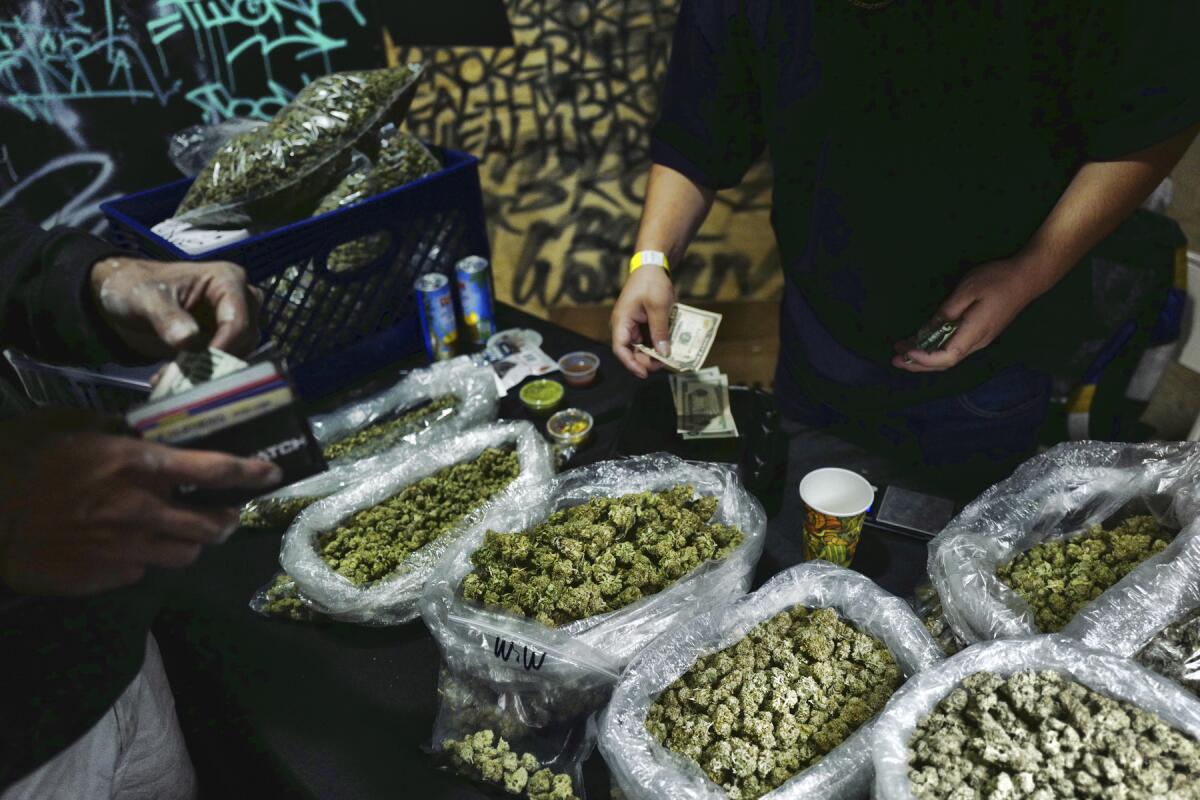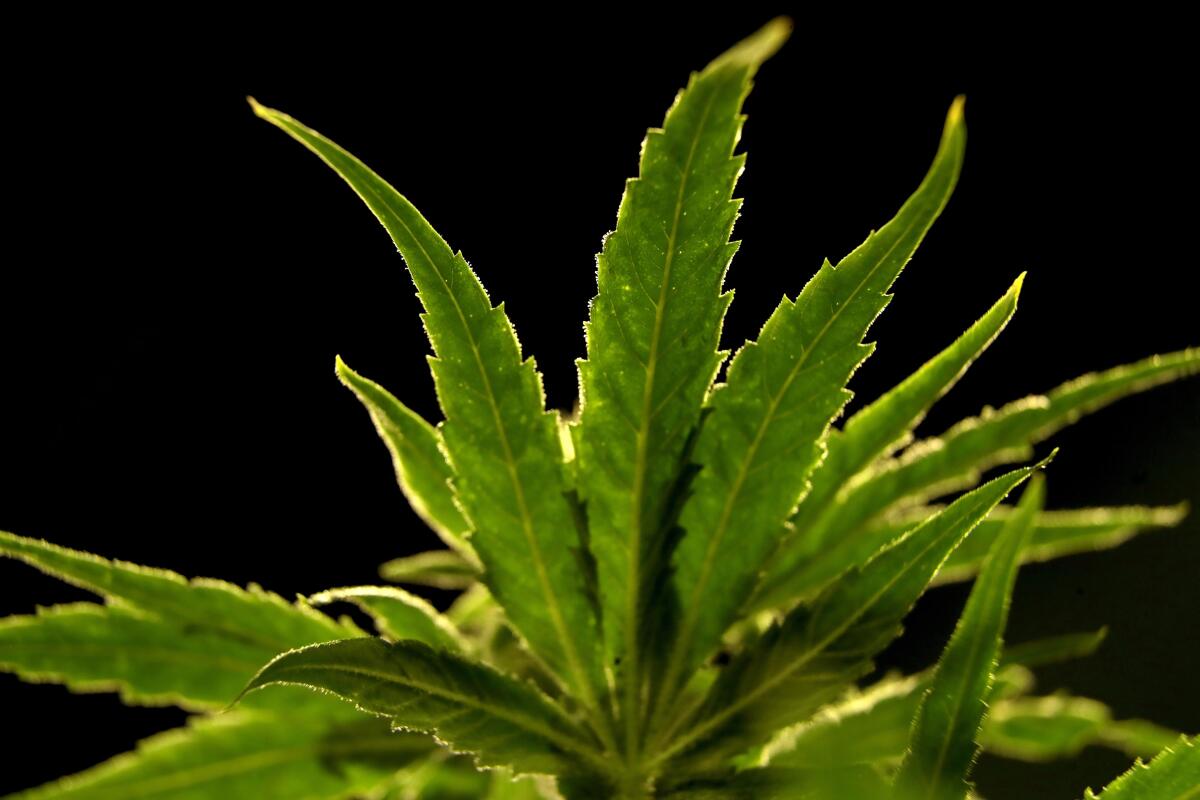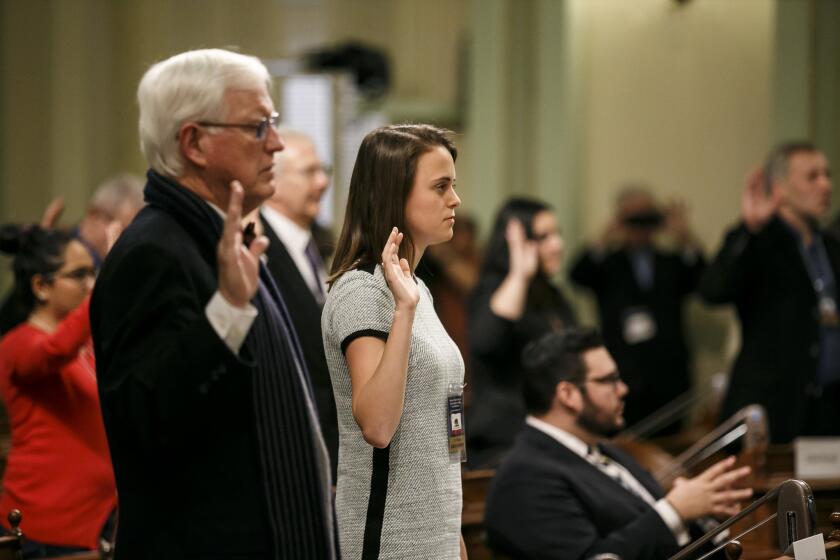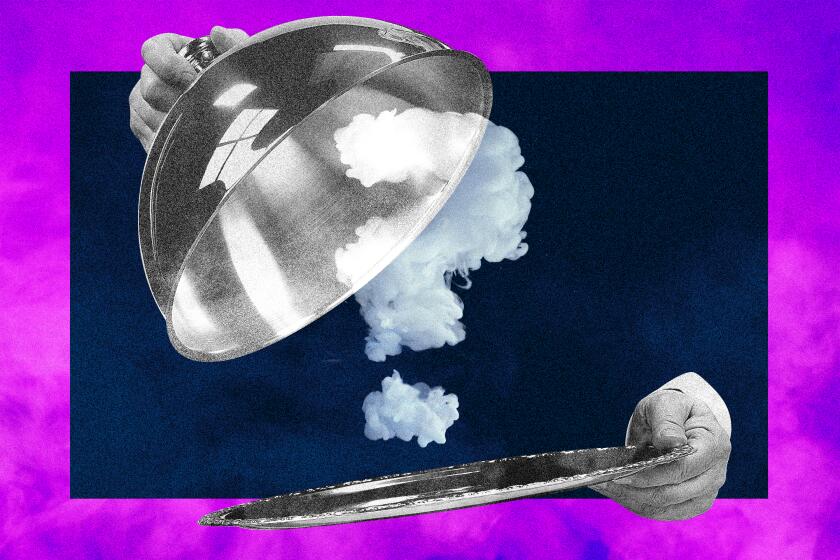Column: Proposition 207, not Donald Trump, stirred the pot in the newly altered state of Arizona

Less than 10 minutes from my home in Maricopa County stood a Trump pop-up shop, and for the last two months I’ve watched a small but consistent stream of supporters pull over to stock up on paraphernalia. One day last week, as I pulled over to see what quirky merch they were offering, I caught a familiar whiff: marijuana.
And for a moment I thought, these are my people.
Turns out I was right.
As much of the country’s attention has understandably been focused on Arizona’s 11 electoral votes — and its somewhat stunning pivot away from the Goldwaterian reputation that has defined the state for more than a half century — there’s another result here that has significant national implications.
The fate of the presidency still hangs in the balance as President Trump and Joe Biden duel over a few remaining battleground states.
Proposition 207, the ballot measure to legalize the possession and use of recreational marijuana in the state, passed with nearly 60% of the vote. This after a similar attempt to legalize failed in 2016. To fully understand how breathtakingly popular this change is for the Grand Canyon State, consider this: The 1.8 million votes (and counting) in favor of Proposition 207 exceeded the vote totals for both presidential candidates.
Historically, marijuana legalization has been a liberal/independent cause, so to see Arizona — a state that has gone red in 16 of the last 17 general elections — say yes to pot is a true sign that it’s time for the federal government to reconsider its position on the issue. A position, mind you, that was authored by President Nixon not for reasons of health or science, but rather simple prejudice, according to Nixon’s domestic policy chief, John Ehrlichman.
“We knew we couldn’t make it illegal to be either against the war or black, but by getting the public to associate the hippies with marijuana and blacks with heroin, and then criminalizing both heavily, we could disrupt those communities,” he reportedly said 26 years ago in an interview that Harper’s Magazine published in 2016. “We could arrest their leaders, raid their homes, break up their meetings, and vilify them night after night on the evening news. Did we know we were lying about the drugs? Of course we did.”

But now it appears the jig is up. Arizona voted not only in favor of recreational marijuana, but Proposition 207 will expunge the records of those convicted of marijuana crimes — such as the felony charge for possession — as well as establish “social equity” licenses for communities historically disenfranchised by now-defunct marijuana laws. It’s a provision similar to ones passed in states that include Colorado, Maryland, New Hampshire, Oregon and California, where there were nearly half a million marijuana felony and misdemeanor arrests between 2006 and 2015 alone.
And for those of you who believe Proposition 207 was driven by city-dwelling Biden supporters, a number of rural counties that voted for Trump also voted in favor of pot.
Arizona is merely catching up with the rest of America. The NFL, arguably the most conservative of the country’s sports leagues, is no longer suspending players who test positive for marijuana, while conservative figureheads such as former House speakers Newt Gingrich and John Boehner support decriminalization. While the Trump-Pence ticket remains opposed to such a move, it is a checklist item on the Biden-Harris agenda. If the latter do indeed win the White House, legalization could be one of those issues on which a divided Congress can come together.
Under America’s complicated system for electing a president, the real presidential vote isn’t until mid-December, when the electoral college meets.
For Californians who have long weighed leaving the sticky icky at home or risk being flagged by TSA officials, this is welcome news. For municipalities crippled by the economic fallout from the pandemic, the potential tax revenue from marijuana, as well as jobs in manufacturing and retail, is sound reason enough to turn the page on this conversation. For a country with 5% of the world’s population but 25% of its prisoners, finding safe and rational ways to alleviate the financial burden of mass incarceration should also be motivation. And in a year in which our streets were flooded with protesters calling for social justice, correcting the errors tied to Nixon’s nefarious war on drugs is a moral imperative.
No one is suggesting legalization doesn’t come with risks, and certainly some revenue from licensing and taxes will need to be set aside for treatment for those who may struggle with addiction. What new entrepreneurial venture — or moral imperative — doesn’t come with pain or risk?
Arizona may have ceded the national spotlight as the player that delivered the presidency, but the state’s passage of Proposition 207 confirms that recreational marijuana has legitimate bipartisan support. The country needs to run with this truth, because there are not a lot of issues that do.
More to Read
Start your day right
Sign up for Essential California for news, features and recommendations from the L.A. Times and beyond in your inbox six days a week.
You may occasionally receive promotional content from the Los Angeles Times.








